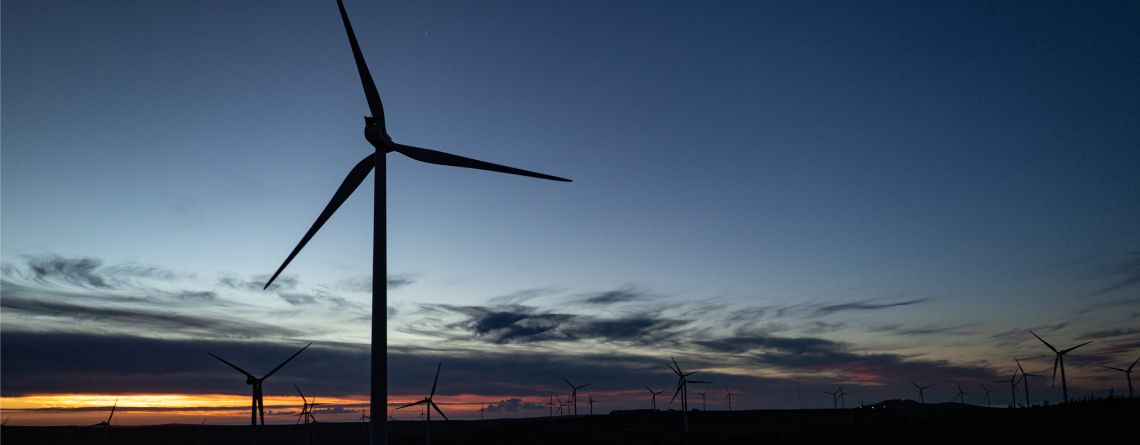In today's rapidly evolving energy landscape, private entities are playing an increasingly vital role in power generation. These entities, known as Independent Power Producers (IPPs), are reshaping the global energy market by producing and selling electricity independently of national utilities. As the demand for sustainable, cost-effective energy grows, IPPs are driving innovation, fostering competition, and helping transition the world toward cleaner energy solutions. But what exactly is an IPP, and why are they so important to the energy sector? This blog explores the role of IPPs and their growing influence on the global energy grid.

History and Growth of IPPs
The rise of IPPs can be traced back to the energy market liberalization that took place in the 1980s and 1990s. As many countries deregulated their energy markets, IPPs were given the opportunity to operate alongside traditional state-owned utilities. This opened up new opportunities for smaller private companies and investors to enter the energy production market, promoting greater competition and diversification in the energy sector. The deregulation allowed IPPs to fill gaps left by public sector utilities, often driving innovation and introducing new, more efficient technologies. As IPPs grew in number, they not only increased the available power supply but also helped reduce energy costs for consumers by encouraging competitive practices in the market.
How IPPs Operate
Independent Power Producers primarily focus on generating electricity, and their operations can span a wide range of energy sources. Some IPPs rely on conventional fuels such as natural gas or biogas, while others have turned to renewable energy sources like solar, wind, and hydroelectric power. Their operations typically involve setting up generation facilities—whether gas turbines, solar farms, or wind turbines—and selling the electricity produced to utilities or directly to large consumers. To secure financial stability and ensure consistent demand, IPPs often enter into long-term Power Purchase Agreements (PPAs) with buyers. These agreements outline the terms under which the IPP will supply electricity, including price, duration, and other conditions. In return, the buyer guarantees to purchase a certain amount of electricity, providing IPPs with the revenue needed to recover their investments.
Importance of IPPs in the Energy Market
IPPs have become a crucial component of the global energy market by promoting competition, increasing the diversity of energy sources, and contributing to energy security. Their role is particularly important in countries with liberalized or deregulated energy markets, where competition can drive down prices for consumers and encourage investment in more efficient technologies. IPPs also support the shift towards renewable energy, helping to meet growing global demand for clean power. They provide the flexibility and scalability needed for the energy transition, enabling the large-scale deployment of wind, solar, and other renewable technologies. By generating power independently from state-run utilities, IPPs reduce reliance on centralized power systems, ensuring a more resilient and diverse energy supply.
Benefits of IPPs
Independent Power Producers offer several key advantages to the energy sector:
Challenges Faced by IPPs
Despite their many benefits, IPPs face several challenges:
Future of IPPs in a Changing Energy Landscape
As the world transitions to more sustainable energy systems, IPPs are playing an increasingly important role in the energy transition. The future of IPPs will likely be shaped by technological advancements in energy storage, microgrids, and smart grid technologies, which will allow IPPs to operate more efficiently and integrate renewable energy more effectively. Additionally, more flexible and innovative Power Purchase Agreements (PPAs) will emerge, accommodating the growing demand for renewable energy and adapting to changes in market conditions.
How IPPs Contribute to the Energy Transition
IPPs are central to the global shift toward renewable energy. By investing in clean technologies, IPPs support the scaling up of renewable energy infrastructure, helping countries meet their sustainability goals. In regions where governments may lack the resources or political will to invest in large-scale renewable energy projects, IPPs provide a crucial solution, ensuring the integration of solar, wind, and other clean energy sources into the grid.
Conclusion
Independent Power Producers (IPPs) are transforming the energy landscape by increasing competition, driving innovation, and accelerating the transition to cleaner energy. Through their flexible and diverse energy solutions, IPPs are helping meet global energy demands while contributing to sustainability efforts. As the energy sector continues to evolve, IPPs will play an even more prominent role in shaping a cleaner, more resilient energy future.

What is an Independent Power Producer (IPP)?
An Independent Power Producer (IPP) is a company or entity that generates electricity independently from national utilities. Unlike traditional public utilities that own the generation, transmission, and distribution of electricity, IPPs focus solely on power generation. They sell their electricity to utilities, power exchanges, or directly to end users. While IPPs can generate power from conventional sources like natural gas, they are increasingly turning to renewable energy sources such as wind, solar, and biomass. The key difference between IPPs and traditional utilities is that IPPs do not own the transmission infrastructure. This means their power generation capacity is typically connected to the grid through power purchase agreements (PPAs) with utilities or other large consumers, contributing to the overall energy supply.History and Growth of IPPs
The rise of IPPs can be traced back to the energy market liberalization that took place in the 1980s and 1990s. As many countries deregulated their energy markets, IPPs were given the opportunity to operate alongside traditional state-owned utilities. This opened up new opportunities for smaller private companies and investors to enter the energy production market, promoting greater competition and diversification in the energy sector. The deregulation allowed IPPs to fill gaps left by public sector utilities, often driving innovation and introducing new, more efficient technologies. As IPPs grew in number, they not only increased the available power supply but also helped reduce energy costs for consumers by encouraging competitive practices in the market.
How IPPs Operate
Independent Power Producers primarily focus on generating electricity, and their operations can span a wide range of energy sources. Some IPPs rely on conventional fuels such as natural gas or biogas, while others have turned to renewable energy sources like solar, wind, and hydroelectric power. Their operations typically involve setting up generation facilities—whether gas turbines, solar farms, or wind turbines—and selling the electricity produced to utilities or directly to large consumers. To secure financial stability and ensure consistent demand, IPPs often enter into long-term Power Purchase Agreements (PPAs) with buyers. These agreements outline the terms under which the IPP will supply electricity, including price, duration, and other conditions. In return, the buyer guarantees to purchase a certain amount of electricity, providing IPPs with the revenue needed to recover their investments.
Importance of IPPs in the Energy Market
IPPs have become a crucial component of the global energy market by promoting competition, increasing the diversity of energy sources, and contributing to energy security. Their role is particularly important in countries with liberalized or deregulated energy markets, where competition can drive down prices for consumers and encourage investment in more efficient technologies. IPPs also support the shift towards renewable energy, helping to meet growing global demand for clean power. They provide the flexibility and scalability needed for the energy transition, enabling the large-scale deployment of wind, solar, and other renewable technologies. By generating power independently from state-run utilities, IPPs reduce reliance on centralized power systems, ensuring a more resilient and diverse energy supply.
Benefits of IPPs
Independent Power Producers offer several key advantages to the energy sector:
- Increased Competition: IPPs foster competition in the electricity market, often resulting in lower prices for consumers and greater efficiency in power generation.
- Flexibility: IPPs can quickly adapt to changing market demands, offering flexible solutions that can respond to fluctuations in energy supply and demand.
- Renewable Energy: IPPs often invest in renewable technologies, driving the global shift toward cleaner energy solutions and reducing reliance on fossil fuels.
- Decentralized Power Generation: By producing power closer to where it is used, IPPs reduce transmission losses and enhance local energy security.
- Energy Security: IPPs contribute to a more stable and reliable energy grid by offering a diverse mix of generation sources, ensuring that the energy supply is less vulnerable to disruptions.
Challenges Faced by IPPs
Despite their many benefits, IPPs face several challenges:
- Revenue Security: IPPs depend on contracts like PPAs to secure revenue, which can be influenced by market price fluctuations and regulatory changes.
- Regulatory Risks: IPPs operate within varying regulatory environments, and changes in policy can affect their profitability. Navigating these regulations is essential to maintaining operational success.
- Grid Capacity and Stability: IPPs rely on the national grid to distribute their electricity, and issues like grid instability, inadequate capacity, and voltage fluctuations can affect their operations.
- Environmental Impact: While IPPs using renewable energy contribute to reducing greenhouse gas emissions, those relying on fossil fuels still contribute to carbon emissions, which complicates efforts to meet global sustainability goals.
Future of IPPs in a Changing Energy Landscape
As the world transitions to more sustainable energy systems, IPPs are playing an increasingly important role in the energy transition. The future of IPPs will likely be shaped by technological advancements in energy storage, microgrids, and smart grid technologies, which will allow IPPs to operate more efficiently and integrate renewable energy more effectively. Additionally, more flexible and innovative Power Purchase Agreements (PPAs) will emerge, accommodating the growing demand for renewable energy and adapting to changes in market conditions.
How IPPs Contribute to the Energy Transition
IPPs are central to the global shift toward renewable energy. By investing in clean technologies, IPPs support the scaling up of renewable energy infrastructure, helping countries meet their sustainability goals. In regions where governments may lack the resources or political will to invest in large-scale renewable energy projects, IPPs provide a crucial solution, ensuring the integration of solar, wind, and other clean energy sources into the grid.
Conclusion
Independent Power Producers (IPPs) are transforming the energy landscape by increasing competition, driving innovation, and accelerating the transition to cleaner energy. Through their flexible and diverse energy solutions, IPPs are helping meet global energy demands while contributing to sustainability efforts. As the energy sector continues to evolve, IPPs will play an even more prominent role in shaping a cleaner, more resilient energy future.



